Portal:History
The History Portal
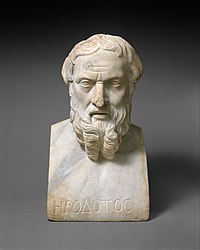
Herodotus (c. 484 BC – c. 425 BC) is often
considered the "father of history"
History (derived from Ancient Greek ἱστορία (historía) 'inquiry; knowledge acquired by investigation') is the systematic study and documentation of the human past.
The period of events before the invention of writing systems is considered prehistory. "History" is an umbrella term comprising past events as well as the memory, discovery, collection, organization, presentation, and interpretation of these events. Historians seek knowledge of the past using historical sources such as written documents, oral accounts, art and material artifacts, and ecological markers. History is incomplete and still has debatable mysteries.
History is an academic discipline which uses a narrative to describe, examine, question, and analyze past events, and investigate their patterns of cause and effect. Historians debate which narrative best explains an event, as well as the significance of different causes and effects. Historians debate the nature of history as an end in itself, and its usefulness in giving perspective on the problems of the present.
Stories common to a particular culture, but not supported by external sources (such as the tales surrounding King Arthur), are usually classified as cultural heritage or legends. History differs from myth in that it is supported by verifiable evidence. However, ancient cultural influences have helped create variant interpretations of the nature of history, which have evolved over the centuries and continue to change today. The modern study of history is wide-ranging, and includes the study of specific regions and certain topical or thematic elements of historical investigation. History is taught as a part of primary and secondary education, and the academic study of history is a major discipline in universities.
Herodotus, a 5th-century BC Greek historian, is often considered the "father of history", as one of the first historians in the Western tradition, though he has been criticized as the "father of lies". Along with his contemporary Thucydides, he helped form the foundations for the modern study of past events and societies. Their works continue to be read today, and the gap between the culture-focused Herodotus and the military-focused Thucydides remains a point of contention or approach in modern historical writing. In East Asia, a state chronicle, the Spring and Autumn Annals, was reputed to date from as early as 722 BC, though only 2nd-century BC texts have survived. (Full article...)
Featured picture
Did you know (auto generated)

- ... that the historical English tables game of Doublets was mentioned in 1549 in a sermon by Latimer to King Edward VI?
- ... that Reconstructing Womanhood by Hazel Carby, about the history of American black women writers, was said to be a "landmark study" and "groundbreaking"?
- ... that theatre critic Günther Rühle's books cover the history of theatre in Germany, its events and its people, from 1887 to 1966?
- ... that Elisabeth Griffith's sweeping 100-year history of the American equal-rights movement has been compared to listening to Billy Joel's "We Didn't Start the Fire"?
- ... that John U. Monro resigned as dean of Harvard College to work at a then-unaccredited, historically black college in Alabama?
- ... that the first Division I college sports championship won by a historically black university in any sport was vacated by the NCAA?
Hugh de Neville (died 1234) was the Chief Forester under the kings Richard I, John and Henry III of England; he was the sheriff for a number of counties. Related to a number of other royal officials as well as a bishop, Neville was a member of Prince Richard's household. After Richard became king in 1189, Neville continued in his service and accompanied him on the Third Crusade. Neville remained in the royal service following Richard's death in 1199 and the accession of King John to the throne, becoming one of the new king's favourites and often gambling with him. He was named in Magna Carta as one of John's principal advisers, and considered by a medieval chronicler to be one of King John's "evil counsellors". He deserted John after the French invasion of England in 1216 but returned to pledge his loyalty to John's son Henry III after the latter's accession to the throne later that year. Neville's royal service continued until his death in 1234, though by then he was a less significant figure than he had been at the height of his powers. (Full article...)
On this day
- 1797 – War of the First Coalition: The siege of Kehl by Habsburg and Württembergian forces ended when French troops withdrew from their fortifications.
- 1917 – First World War: Troops of the British Empire defeated Ottoman forces at the Battle of Rafa on the Sinai–Palestine border in present-day Rafah.
- 1972 – The Los Angeles Lakers of the National Basketball Association lost to the Milwaukee Bucks, ending a 33-game winning streak, the longest in major American professional team sports.
- 1975 – In Central and Southeastern United States, a Great Storm formed the first of forty-five tornados over a three-day period.
- 1992 – Radio astronomers Aleksander Wolszczan and Dale Frail announced the discovery of two planets orbiting the pulsar PSR B1257+12 (depicted), considered to be the first definitive detection of exoplanets.
- T. W. Robertson (b. 1829)
- Carrie Chapman Catt (b. 1859)
- Farhan Akhtar (b. 1974)
- Lei Jieqiong (d. 2011)
Selected quote
It is of the nature of desire not to be satisfied, and most men live only for the gratification of it.
— Aristotle, 4th-century Greek philosopher
Related portals
More Did you know...
- ... that the anti-religious campaign culminating in the Stalinist show trial of the Kraków Curia (pictured) led to the imprisonment of 123 Polish Roman Catholic priests in just one year?
- ... that Confederate brigadier general Alfred E. Jackson was pardoned by President Andrew Johnson because of his kindness toward Johnson's family during the Civil War?
- ... that after HMS Porcupine was nearly split in two by a torpedo, the halves were nicknamed HMS Pork and HMS Pine?
- ... that the Experiment was a boat powered by horses running on a treadmill and propelled by a then-novel type of screw propeller?
- ... that one of the highest-ranking generals in China was injured in battle nine times?
- ... that in Mesopotamian mythology, the Apkallu were sent by the god Enki, from Dilmun to teach human beings various aspects of civilization?
- ... that Karl Marx's theory of historical trajectory attempted to prove the long-term unsustainability of capitalism?
- ... that in November 1921, the schooner Cymric collided with a tram in Dublin?
Topics
Categories

History • By period • By region • By topic • By ethnic group • Historiography • Archaeology • Books • Maps • Images • Magazines • Organizations • Fictional • Museums • Pseudohistory • Stubs • Timelines • Chronology • People • Wikipedia historians
WikiProjects
![]() WikiProject History •
Ancient Near East • Australian History • Classical Greece and Rome • Dacia • Former countries • History of Canada • Chinese history • European history • Heraldry and vexillology • Indian history • Jewish history • Medieval Scotland • Mesoamerica • Military history • Middle Ages • History of Science
WikiProject History •
Ancient Near East • Australian History • Classical Greece and Rome • Dacia • Former countries • History of Canada • Chinese history • European history • Heraldry and vexillology • Indian history • Jewish history • Medieval Scotland • Mesoamerica • Military history • Middle Ages • History of Science
WikiProject Time • Days of the Year • Years
WikiProject Biography • Composers • Political figures • Saints • United States Presidents
Things you can do
 |
Here are some tasks awaiting attention:
|
Associated Wikimedia
The following Wikimedia Foundation sister projects provide more on this subject:
-
Commons
Free media repository -
Wikibooks
Free textbooks and manuals -
Wikidata
Free knowledge base -
Wikinews
Free-content news -
Wikiquote
Collection of quotations -
Wikisource
Free-content library -
Wikiversity
Free learning tools -
Wiktionary
Dictionary and thesaurus

![Image 1 Piłsudski c. 1920s Józef Klemens Piłsudski[a] (Polish: [ˈjuzɛf ˈklɛmɛns piwˈsutskʲi] ⓘ; 5 December 1867 – 12 May 1935) was a Polish statesman who served as the Chief of State (1918–1922) and first Marshal of Poland (from 1920). In the aftermath of World War I, he became an increasingly dominant figure in Polish politics and exerted significant influence on shaping the country's foreign policy. Piłsudski is viewed as a father of the Second Polish Republic, which was re-established in 1918, 123 years after the final partition of Poland in 1795, and was considered de facto leader (1926–1935) of the Second Republic as the Minister of Military Affairs. Seeing himself as a descendant of the culture and traditions of the Polish–Lithuanian Commonwealth, Piłsudski believed in a multi-ethnic Poland—"a home of nations" including indigenous ethnic and religious minorities. Early in his political career, Piłsudski became a leader of the Polish Socialist Party. Believing Poland's independence would be won militarily, he formed the Polish Legions. In 1914, he predicted a new major war would defeat the Russian Empire and the Central Powers. After World War I began in 1914, Piłsudski's Legions fought alongside Austria-Hungary against Russia. In 1917, with Russia faring poorly in the war, he withdrew his support for the Central Powers, and was imprisoned in Magdeburg by the Germans. (Full article...)](http://upload.wikimedia.org/wikipedia/en/d/d2/Blank.png)
.jpg/220px-Józef_Piłsudski_(-1930).jpg)




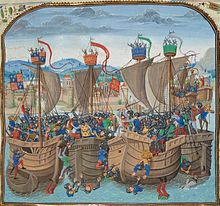
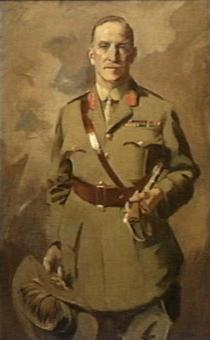
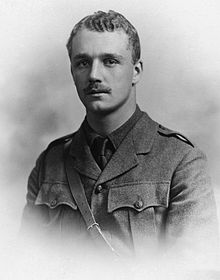
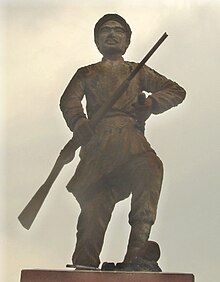
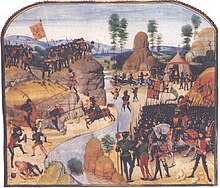
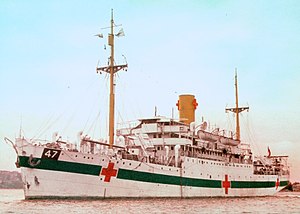

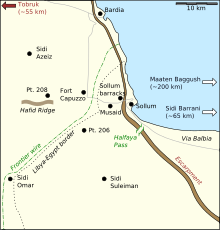


















.jpg/220px-Waltham_Abbey_-21Oct2007_(3).jpg)

.jpg/175px-Stalinizm_-_proces_Kurii_Krakowskiej_(1953).jpg)



















